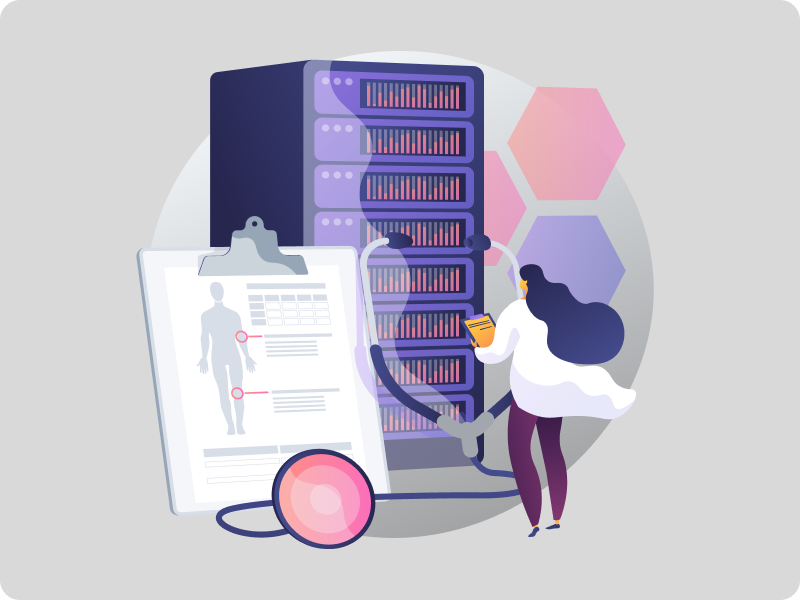How EMR Data Analytics Can Drive Smarter Healthcare Decisions
In the modern healthcare landscape, data is king. Electronic Medical Records (EMRs) have revolutionized how patient information is stored and accessed, but their true potential lies in the insights they can provide. By leveraging EMR data analytics, healthcare providers can make smarter, data-driven decisions that improve patient outcomes, streamline operations and reduce costs.
In this blog, we’ll explore how EMR data analytics is transforming healthcare, the benefits it offers and how your practice can harness its power to drive smarter decisions.
The Power of EMR Data Analytics
EMR data analytics involves analyzing the vast amounts of data stored in electronic medical records to identify patterns, trends and insights. This data can include patient demographics, medical histories, treatment plans, lab results and more. When analyzed effectively, EMR data can provide actionable insights that enhance decision-making at every level of healthcare delivery.
Benefits of EMR Data Analytics
1. Improved Patient Outcomes
By analyzing patient data, healthcare providers can identify trends and risk factors, enabling early intervention and personalized treatment plans. For example, predictive analytics can help identify patients at risk of chronic conditions like diabetes or heart disease, allowing for proactive care.
2. Enhanced Operational Efficiency
EMR data analytics can streamline workflows by identifying bottlenecks, optimizing resource allocation and reducing administrative burdens. This allows healthcare providers to focus more on patient care and less on paperwork.
3. Cost Reduction
Analyzing EMR data can help identify areas where costs can be reduced without compromising care quality. For instance, by tracking medication adherence, providers can reduce hospital readmissions and associated costs.
4. Population Health Management
EMR data analytics enables healthcare providers to monitor and improve the health of entire populations. By identifying common health issues and risk factors, providers can implement targeted interventions and preventive care programs.
5. Data-Driven Decision Making
With access to comprehensive data, healthcare providers can make informed decisions based on evidence rather than intuition. This leads to better diagnosis, treatment and overall patient care.
Key Applications of EMR Data Analytics
1. Predictive Analytics
Predictive analytics uses historical and real-time data to forecast future events, such as disease outbreaks or patient admissions. This allows healthcare providers to take proactive measures and allocate resources effectively.
2. Clinical Decision Support
EMR data analytics can power clinical decision support systems (CDSS) that provide real-time recommendations to healthcare providers. For example, a CDSS might alert a doctor to potential drug interactions or suggest evidence-based treatment options.
3. Patient Risk Stratification
By analyzing patient data, providers can stratify patients based on their risk levels. High-risk patients can receive more intensive monitoring and care, while low-risk patients can be managed more efficiently.
4. Quality Improvement
EMR data analytics can help healthcare providers track and improve the quality of care. By analyzing outcomes and identifying areas for improvement, providers can implement changes that enhance patient satisfaction and safety.
5. Financial Performance Analysis
Analyzing financial data from EMRs can help healthcare providers identify revenue cycle inefficiencies, optimize billing processes and improve cash flow.
Challenges and Considerations
While EMR data analytics offers numerous benefits, it also comes with challenges:
- Data Quality: Accurate and complete data is essential for meaningful analysis. Inconsistent or incomplete data can lead to flawed insights.
- Data Privacy: Protecting patient data is paramount. Healthcare providers must ensure compliance with regulations like HIPAA and GDPR.
- Integration: EMR data analytics requires integration with other systems, such as lab results and billing platforms, to provide a comprehensive view.
- Staff Training: Healthcare providers and staff need to be trained to use analytics tools effectively and interpret the results.
Conclusion
EMR data analytics is a game-changer for healthcare providers, offering insights that drive smarter decisions, improve patient outcomes and enhance operational efficiency. By leveraging the power of EMR data, healthcare providers can transform the way they deliver care and stay ahead in an increasingly data-driven industry.




